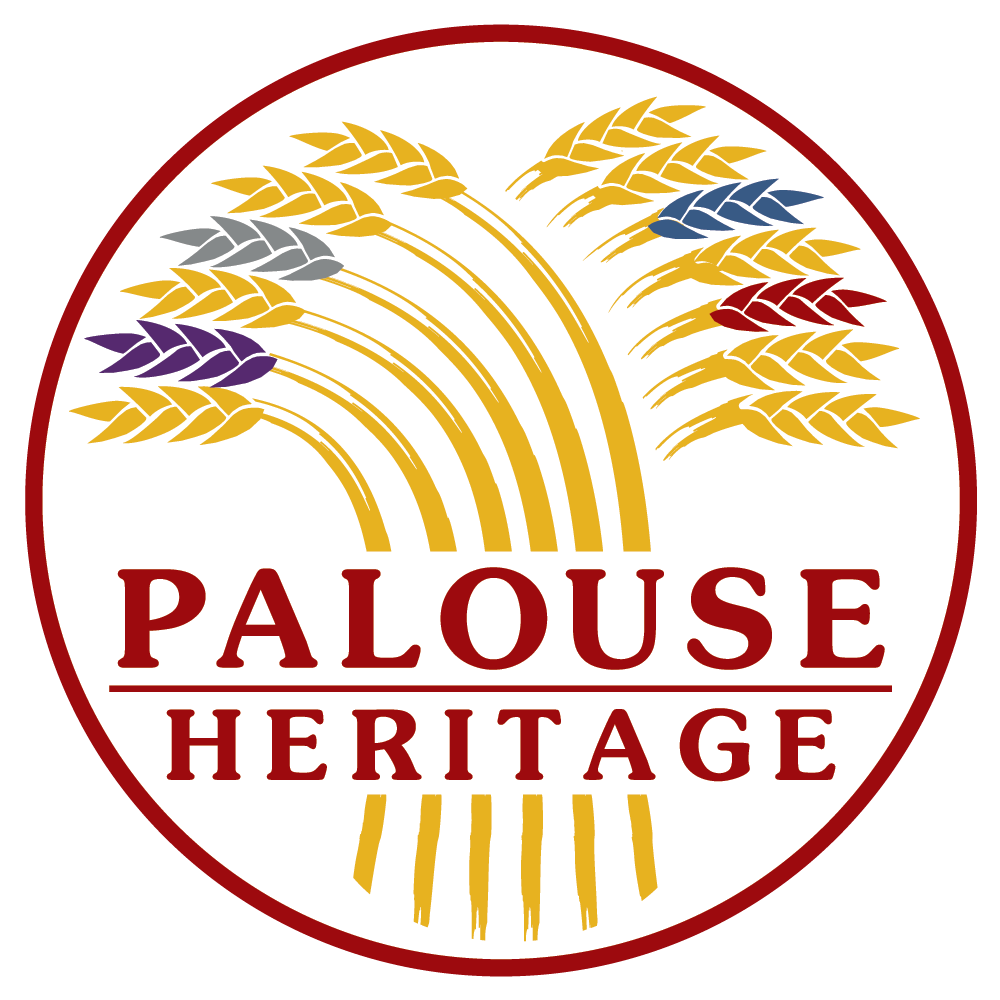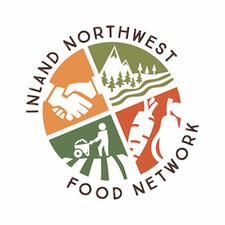Palouse Heritage in the News
Harvesting Resilience: Cultivating crops in the face of climate challenges
Don Scheuerman, grain grower and co-founder of Palouse Heritage, explains it best: “If you have several varieties in one field, depending on the weather events, some will flourish and some maybe won’t flourish, as opposed to, if you had one crop of one thing, it’s a real gamble as to what kind of yield you’ll produce.”
Scheuerman has been a longtime partner of the Sustainable Seed Systems Lab. He routinely grows Elwha River spelt on his farm in between Endicott and St. John, but he is always willing to try something new.
Shaun Thompson Duffy's granular understanding of bread making has transformed the Inland Northwest's relationship with bread
Culture Breads and the Grain Shed also mill their own flour from heritage grains grown less than 70 miles south of Spokane. (They come from Palouse Heritage, the farm owned by Scheuerman.) These landrace varieties, and ancient grains like einkorn and spelt, are inherently more flavorful than modern grains for several reasons, Thompson Duffy says. Modern grains have been bred to have a smaller germ, which is sheared off during processing, even in whole grain flours. Opportunities — and flavor — wasted.
Bird Creek Whiskey - Purple Egyptian & Scots Bere
Bird Creek Distillery just released single malts using Palouse Heritage Purple Egyptian and Scots Bere. Learn more in this video here.
Brothers find success in landrace, heritage grain
Surrounded by a sea of grain, Palouse Heritage is making its own waves in the local and regional food system with their landrace and heritage crops. Located between Endicott and St. John., Wash., Palouse Heritage was established in 2015 by brothers Don and Richard Scheuerman who grew up on a small Whitman County farm. The company wholesales most of their grain to bakers, brewers and maltsters.
A need for mead: Brewer talks ‘fermented honey in water’ ahead of opening Emrys Fermentations
Brewer Thomas Croskrey, known for opening Bellwether Brewing, is opening Emrys Fermentations, a meadery and brewery in Liberty Lake, WA. The meadery will feature Palouse Heritage grains. “For example, if we’re doing an English mild, we’ll adapt it to Pacific Northwest flavor profiles. We’ll be doing a Pacific Northwest malt primarily out of Palouse Heritage Farms. We’re working a lot with them, and we’re pretty much using 100% of our base malt through those guys.”
Bellwether co-founder to develop new meadery
“One hundred percent of our base malt is coming out of Palouse Heritage, about 60 miles away,” Croskrey says. “They're the ones doing landrace grains. We'll be using Scots Bere barley, Purple Egyptian barley, and English squarehead wheat. We’ll be using that in the food side, as well, for our baking and crusts of hand pies.” Croskrey is familiar with Palouse Heritage. He used grains from the farm in his brews at Bellwether Brewing, which he co-founded in 2015.
This Northwest Brewery Has A Brilliant Side Hustle
Meeting innovative grain farmer Don Scheuerman and seasoned baker Shaun Thompson Duffy pushed the plan towards reality in 2018…Williamson was in on the ground floor of LINC Foods, a worker and farmer-owned food hub dedicated to building a robust source of local ingredients to feed the community. That includes the heritage grains grown south of Spokane in the verdant region known as the Palouse. That’s where Williamson met Scheuerman, becoming a huge fan of his efforts to revive grains that were shelved in favor of varieties that are more suited for industrial agriculture.
Grain Shed makes best bakeries list
South Perry's Grain Shed made the cut on a list of the top 35 bakeries in the U.S. recently published by the Food Network…The bakery's bread is made with ancient grains locally grown by Palouse Heritage.
Co-op begins selling unique barley beer in cans
The beer is made using purple Egyptian barley grown by Endicott-based farmer-owner Don Scheuerman through Palouse Heritage Grains…
The Grain Shed owner Don Scheuerman: ‘I grow beer and bread’
Scheuerman’s grains, called landrace or heritage, remain in their archaic form without having suffered the effects of hybridization. They have longer roots than their modern commercial cousins and tap into trace nutrients deeper in the soil. Scheuerman speaks passionately about the dangers of monocrops and believes the chemicals found in Round-Up – glyphosate – that are turning up in wines and Cheerios and baby food are, if you read the European scientific papers, causing cancer. […]
However, it’s not just about taste. Scheuerman is a man is on a mission. His ambition is to educate people about the food supply chain. His stated goal: to get you to stop poisoning your kids, to stop wrecking the planet, and to eat and drink things that taste good and are good for you.
Harvest Heritage - The Story of Humanity in Twelve Farm Paintings
A collection of 12 works including originals, first editions and reprints, depicting harvest and related scenes of rural life from the 16th century to present day. This exhibit represents a small portion of what has been acquired by curator Richard Scheuerman as research into his many books on the subject.
Author seeks harvest tradition stories
Richard Scheuerman, who is also co-founder of Palouse Heritage Grains, spoke this week at events in Colfax and Pullman, Wash., to coincide with the release of his book, “Hardship to Homeland,” published by Washington State University Press and available throughout the region. “I’d love if (farmers) would share memories they might have,” Scheuerman said. “Old World harvest traditions, but hey, I’m also interested in the fact that when we were kids, our fathers threw their hats in the combine on the last minute of harvest.”
A Getaway to the ‘Tuscany of America’
Sitting on the grass beneath the towering pines at the Social, we talked to brothers Don and Richard Scheuerman of Palouse Heritage, who are working to revive the landrace grains that were first farmed in the region a century and a half ago. “All these towns have something special,” said Richard, and former professor at Seattle Pacific University and author of several books on the region.
Better bread & beer
No small grains are native to North America, so whatever the Hudson Bay traders were using, they had to bring it in themselves. But which specific varieties did they grow? That initial question sparked an 18-month investigation into colonial agriculture and ultimately prompted Scheuerman and his brother, Don, to start Palouse Colony Farm. The 35-acre operation, located near Endicott, specializes in heritage or "landrace" grains. These are older varieties that predate modern hybridization efforts; they would have been familiar not only to early American colonists, but to the Vikings and Celts, the Crusaders and Roman legions. Some may even date back to biblical times.
On Tap: Grain Shed taps into Palouse harvest
A long-vacant grocery store on the edge of the South Perry District has been reborn as the co-op home of Culture Breads bakery and Grain Shed Brewing, both using ancient grains grown by Palouse Heritage. For starters, those include a pair of barleys – the rich, bready Scots Bere and fruity, nutty Purple Egyptian (think Grape Nuts cereal) – along with the fragrant Red Russian wheat, which has herbal, coriander notes. “They’re very nutrient-dense and flavor-dense,” said Don Scheuerman of Palouse Heritage, which operates a farm between Endicott and St. John. “The flavors are deep and robust.” Those flavors will vary from year to year, depending on conditions. “The best way to think about it is like wine (grapes),” Scheuerman said. “The weather will impact the nutrients, and flavor follows nutrients.”
New bakery, brewery opens in Spokane
The Grain Shed officially opened Friday morning after a successful soft launch last weekend. The business is divided into a small brewery and tasting room, along with a bakery and cafe. Co-owner and brewery Teddy Benson said all the grains used to brew and bake are local. Most are grown at Palouse Heritage Farms, near Endicott.
A new market for landrace grains
Don Scheuerman believes the future of farming lies in the plants that were grown in the past. Scheuerman co-founded Palouse Heritage with his brother, Richard, seven years ago, and incorporated in 2014. The company sells ancient landrace grains.
The early landrace grains are like the “great-great grandparents” of today’s modern wheat varieties, he said, adding they are low-input and require little fertilizer. The company fills a specific niche, Scheuerman said. “Our markets are the 49 percent of the people in Washington, Oregon and California who voted for mandatory GMO (genetically modified organism) labeling,” he said.
golden waves of grain
Today we grow 11 varieties of landrace, or ancient, grains that we sell in the form of artisan baking flours at palouseheritage.com (our website) to local bakeries. We also turn our grains into culinary malts used for craft brewing.
One meaningful aspect of our work has been rediscovering how our ancestors lived when they came to America. In addition to growing grain, they also established a shared commons for grazing and substantial gardens. They tended long, narrow fields to conserve soil in three-crop rotations rotations of fall wheat, spring barley or oats, and rye. Their Turkey Red, the first hard bread wheat in the American West, revolutionized U.S. culinary history.
Ready to rise: Culture Breads is preparing to open in Spokane’s South Perry neighborhood
For grain, he sought out farmers from Cheney and Reardan to Lind and Endicott who were growing or were willing to plant the varieties he wanted to use: Turkey Red Wheat, Red Russian Wheat, White Llamas Wheat, Scots Bere, Purple Egyptian Barley, einkorn, khorasan, rye, triticale, spelt, emmer. They aren’t certified organic, but the farmers who grow them, including Don Scheuerman, co-founder of Palouse Heritage and one of Thompson Duffy’s business partners, use organic methods. “Eastern Washington is such a prime spot to grow grain,” Thompson Duffy said. But, he noted, most of the grain grown in this state – 85 to 90 percent of its production each year, according to the Washington Grain Commission – is exported.
Meet Your Farmer – Don Scheuerman
Palouse Colony Farm, owned and operated by Palouse Heritage, was established along the Palouse River in the 1880s by German immigrant farmers from Russia who applied sustainable farming practices that included four-field crop rotations to promote fertility, use of natural soil amendments, and restoration of landrace grains and other heirloom produce. The farm was re-established in 2015 by the Ochs and Scheuerman families, who are descendants of those early immigrants. I recently had an opportunity to chat with Don Scheuerman, co-founder of Palouse Heritage and Director of Business Development.
latest updates on some local food ventures set to open soon
Called Culture Breads, the spot is planning a soft opening in February, and will be home to a wood-fired oven and stone grain mill, the latter of which will be used to mill all the bakery's flour from grains grown on farms in the Palouse. The hyper-local operation will also share the space with a brewery called Grain Shed Brewing. Duffy’s partners on the project are LINC Foods and Palouse Pint co-owner Joel Williamson, brewer Teddy Benson and Palouse Heritage Farms’ Don Scheuerman. In addition to a traditional bakery and brewery, the space is also set to feature a café.
100% Made in Washington
Called “landrace” crops, the Scheuermans grow and sell ancient prehybridized wheat, barley, oats, rye, and other grains through Palouse Heritage Grains. For example, says Richard ’73, they re-established the first wheat ever grown in the Northwest, Hudson’s Bay White. A history buff who has written extensively about the state’s agricultural past, Richard is an education professor at Seattle Pacific University. His brother Don manages the Palouse Colony Farm’s 30 acres. (We’re the smallest farm in Whitman County, jokes Don.) They credit WSU grain researchers Steve Lyon and Stephen Jones with helping track down and promote the landrace varieties.
Grin and Bere it at Bellwether
Now history is repeating itself with another ancient varietal, Scots Bere, which will be showcased each Thursday through August starting this week. The barley again is grown by Palouse Heritage (which sourced original seed stock from Scotland’s Orkney Island), and malted by Palouse Pint in the Spokane Valley. The beers again will be accompanied by loaves made with the grain by Culture Breads.
For Purple Waves of Grain
An ongoing local collaboration is celebrating beer's main ingredient — malted barley — for a seven-week event dubbed the Purple Egyptian Barley Project…Working in conjunction with Washington State University, Scheuerman and his brother Richard were able to source a small amount of Purple Egyptian seed from a seed bank, and they have planted and multiplied it over several years. While a few other similar varieties are grown on a small scale in the U.S., Scheuerman says he's not aware of anyone else growing this strain.
Purple grain
Bellwether this week launches its Purple Egyptian Barley Project. Over the next seven Thursdays, through April 6, it will release a variety of beers using the grain grown in this region by Palouse Heritage and malted by Palouse Pint in the Spokane Valley.
Grains of Truth
Built by New American Stone Mills, Duffy's new mill weighs about 2,500 pounds and cost more than $18,000. It will allow him to mill his own flour, particularly the soft wheat variety he gets from Palouse Heritage's Palouse Colony Farm, located between the Whitman County towns of St. John and Endicott.
Palouse Colony Farm Officially Recognized as Washington State Historic Site!
Palouse Colony Farm was placed on the Washington State Historic Preservation Office Register for the original barn and outbuildings and the property’s role in Pacific Northwest history as an important “clearing house” for German immigrants from Russia arriving in to region from 1880s to the 1910s.
Return to Palouse Colony Farm
A recent business endeavor has brought Scheuerman to re-establish the Palouse Colony and its Old World farming methods as Palouse Heritage. “An opportunity came for us to acquire the property about two years ago,” said Scheuerman. “I have always kept interested in researching about the Palouse country. It was a special opportunity I didn’t want to pass up.”
Locally Grown Barley Means Truly Local Beer
Skagit’s “Purple Egyptian” barley has ignited a firestorm of anticipation among craft brewers, not only because of its zesty fruit character, but also because it is an ancient grain that originated in the headwaters of the Nile River and was revived by scientists and grain historians at Seattle Pacific University. Craft brewers, and craft beer drinkers, love that kind of geeky stuff.
DISCOVER THE TERROIR OF WASHINGTON – PIKE BREWING, LOCALE SERIES
Now Pike Brewing Company is working directly with Skagit Valley farmers to grow barley varietals specifically for craft beer malt. These varietals will bring new, full and complex flavors that today’s craft beer drinkers want. We are introducing this with Pike Locale, a series of beers made with 100% Washington State ingredients that define our local terroir…Skagit Valley Alba’s base malt was grown by Knutzen Farms (Skagit Valley) and includes malts from Palouse Colony Farm (Whitman County), Washington Bulb Co. and Hedlin Farms (Skagit Valley).



























